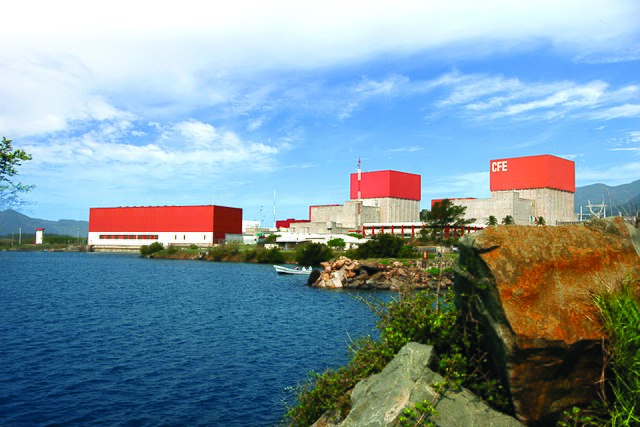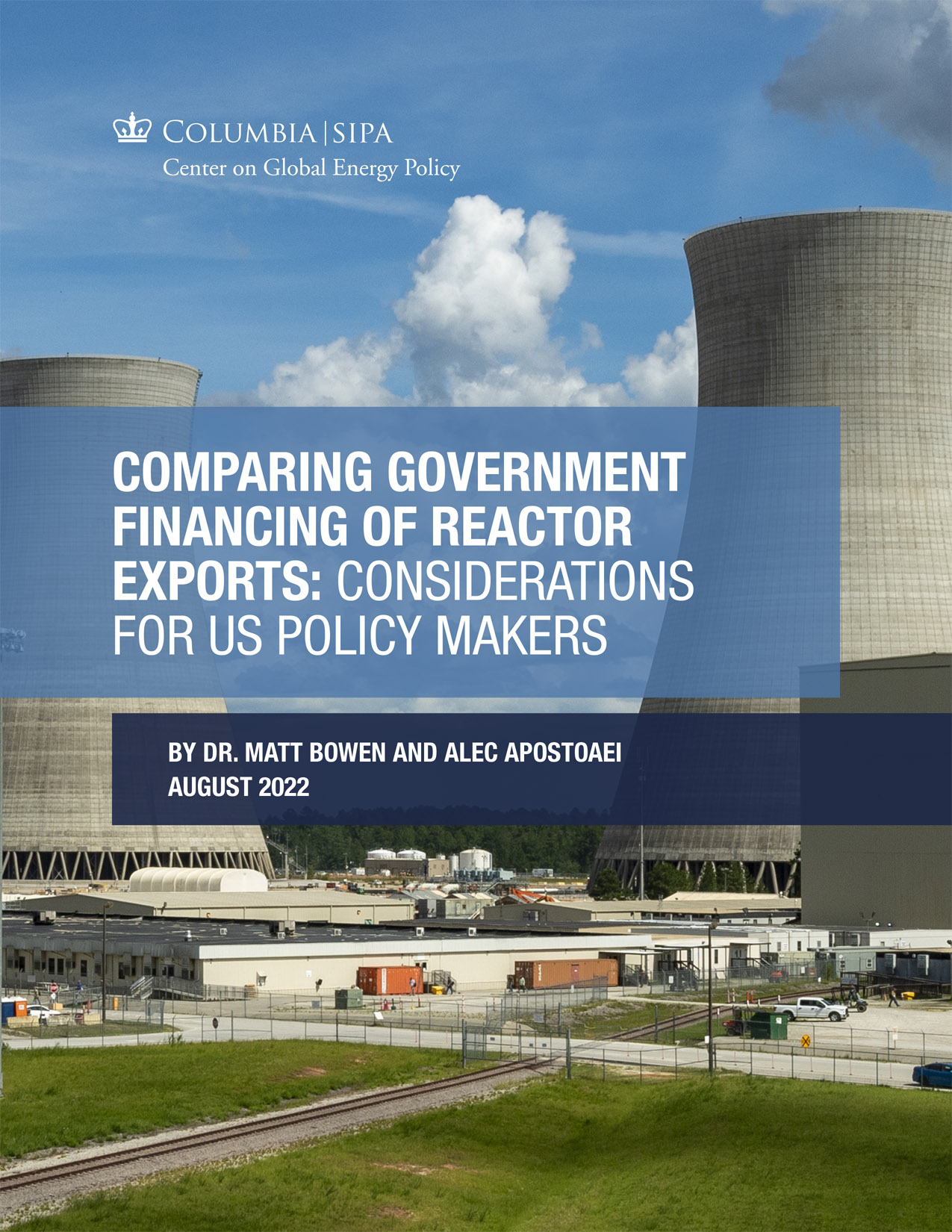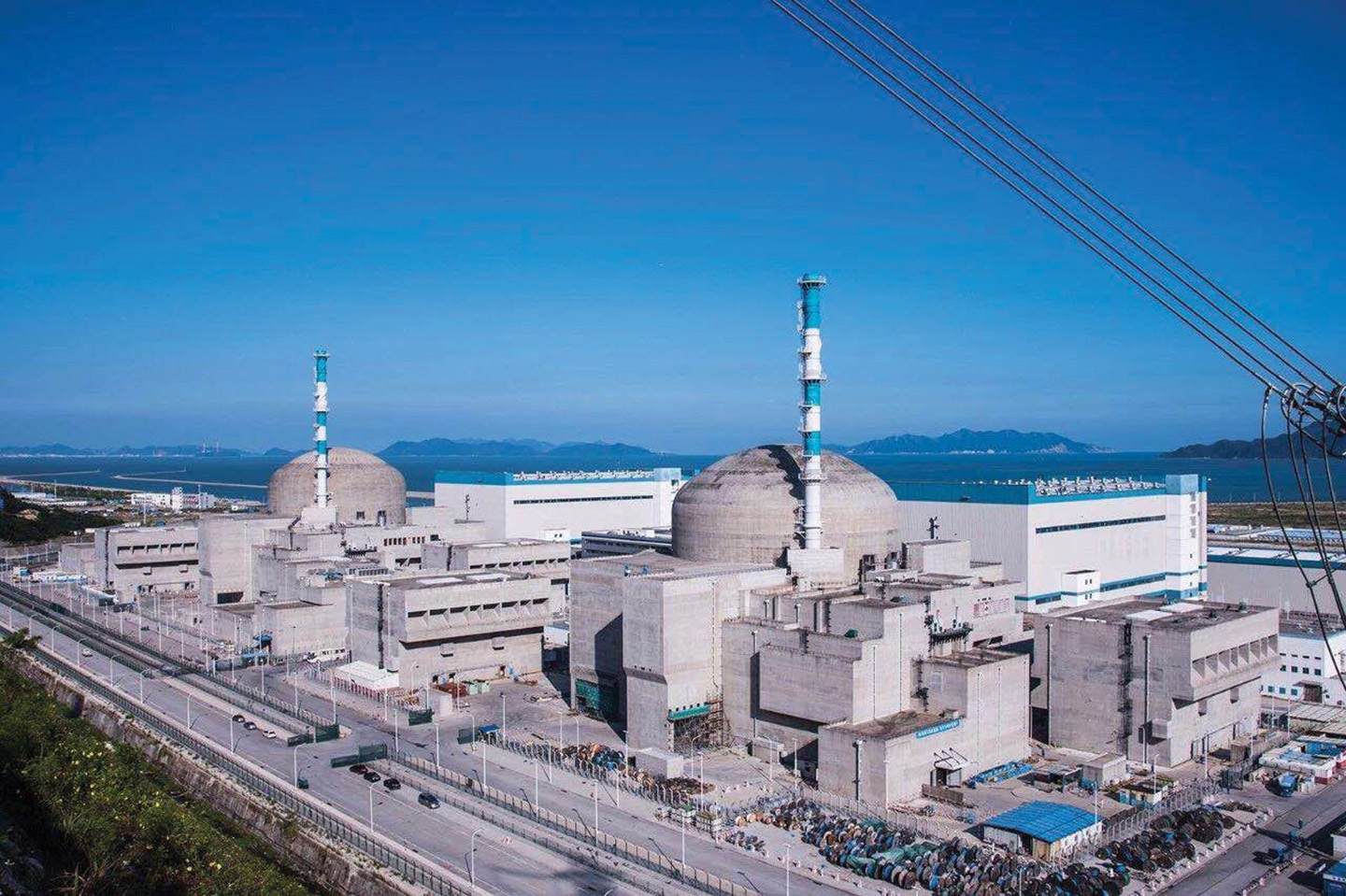Southern plans second license renewal for Hatch

Southern Nuclear, operator of the two-unit Hatch nuclear plant, announced yesterday that it will seek subsequent license renewals (SLR) for both reactors.
Published since 1959, Nuclear News is recognized worldwide as the flagship trade publication for the nuclear community. News reports cover plant operations, maintenance and security; policy and legislation; international developments; waste management and fuel; and business and contract award news.

A message from Westinghouse Electric Company Parts Business
Westinghouse delivers advanced, plug-in-ready power supply solutions that eliminate obsolescence and keep nuclear plants running safely, reliably, and future-ready.

Southern Nuclear, operator of the two-unit Hatch nuclear plant, announced yesterday that it will seek subsequent license renewals (SLR) for both reactors.

Bowing at last to the unflagging efforts of nuclear advocates over the past few years—as well as to more recent pressure from a former nuclear opponent, Gov. Gavin Newsom—the California legislature late last night approved S.B. 846, a measure that provides the option of extending operations at the Diablo Canyon nuclear power plant for five years beyond its scheduled 2025 closure date.
Pacific Gas and Electric, Diablo Canyon’s owner and operator, had agreed in June 2016 to an early shuttering of the facility, following discussions with organized labor and environmental organizations. PG&E’s application to close the plant was approved by the California Public Utilities Commission in January 2018.
The bill passed easily through both legislative chambers: 67–3 in the General Assembly and 31–1 in the Senate.

Unit 2 at Mexico’s Laguna Verde nuclear plant has been given the go-ahead to operate into the 2050s, plant owner and operator Comisión Federal de Electricidad (CFE) announced last week.
Mexico’s secretary of energy, Norma Rocío Nahle García, approved a 30-year extension to the unit’s operating license on August 25, following a review by the country’s National Commission for Nuclear Safety and Safeguards. The reactor, one of two at the plant, is now authorized to run until April 10, 2055.
 As energy security and environmental concerns prompt some countries to increase their reliance on nuclear energy or become first-time adopters of the technology, the U.S. government must decide whether it will offer financing for reactor exports—a move that poses financial risks but could create jobs, address global climate and energy security challenges, and limit Chinese and Russian influence. A new report released on August 25 by the Center on Global Energy Policy at Columbia University’s School of International and Public Affairs, Comparing Government Financing of Reactor Exports: Considerations for U.S. Policy Makers, digs into the history of nuclear reactor financing and delivers recommendations for U.S. policymakers.
As energy security and environmental concerns prompt some countries to increase their reliance on nuclear energy or become first-time adopters of the technology, the U.S. government must decide whether it will offer financing for reactor exports—a move that poses financial risks but could create jobs, address global climate and energy security challenges, and limit Chinese and Russian influence. A new report released on August 25 by the Center on Global Energy Policy at Columbia University’s School of International and Public Affairs, Comparing Government Financing of Reactor Exports: Considerations for U.S. Policy Makers, digs into the history of nuclear reactor financing and delivers recommendations for U.S. policymakers.
Matt Bowen, research scholar at the center and the report’s lead author, told Nuclear News, “Given how important financing is to countries considering new reactor construction, as well as the competition that U.S. vendors face from foreign state-owned entities, Congress and the White House should both focus attention on the issue, including policy options to increase U.S. competitiveness.”

Korea Hydro and Nuclear Power (KHNP) has signed a contract with Atomstroyexport JSC—the engineering division of Russia’s Rosatom—to build the turbine islands for Egypt’s El Dabaa nuclear power plant, construction of which commenced just last month with the pouring of first concrete.
 The deadline for first-round applications to the Department of Energy’s Civil Nuclear Credit (CNC) Program is September 6. While the program’s goal has never shifted from providing support to nuclear power plants facing closure for economic reasons so that they can continue generating clean power, the deadline and the first-round eligibility criteria have changed. The program was established by the Bipartisan Infrastructure Law with a sizable, yet finite, fund of $6 billion. Those applying in the first round will get the first—and possibly the best—crack at a share of the funds.
The deadline for first-round applications to the Department of Energy’s Civil Nuclear Credit (CNC) Program is September 6. While the program’s goal has never shifted from providing support to nuclear power plants facing closure for economic reasons so that they can continue generating clean power, the deadline and the first-round eligibility criteria have changed. The program was established by the Bipartisan Infrastructure Law with a sizable, yet finite, fund of $6 billion. Those applying in the first round will get the first—and possibly the best—crack at a share of the funds.

After months of urgent entreaties to both the Ukrainian and Russian governments to allow the International Atomic Energy Agency access to the embattled Zaporizhzhia nuclear plant, IAEA director general Rafael Mariano Grossi yesterday set off for the facility, accompanied by a team of nuclear security, safety, and safeguards experts.

A bill to extend operations at California’s Diablo Canyon nuclear plant beyond 2025 debuted last evening in the California legislature. Lawmakers have until Wednesday—the end of the current legislative session—to vote on the measure.
Coauthored by State Sen. Bill Dodd (D., Napa) and Assemblymember Jordan Cunningham (R., San Luis Obispo), Senate Bill 846 includes a $1.4 billion forgivable loan to Pacific Gas and Electric (PG&E), the plant’s owner and operator, matching the amount in the August 12 proposal from Calif. Gov. Gavin Newsom. Instead of Newsom’s proposed option for a 10-year life extension for the facility, however, SB 846 would keep the plant running for an additional five years only.

Representatives of Ultra Safe Nuclear Corporation (USNC) of Seattle, Wash., and Hyundai Engineering of Seoul, South Korea, traveled last week between USNC project sites in Oak Ridge, Tenn., and Ontario, Canada, to sign two agreements extending their collaboration on the deployment of USNC’s high-temperature, gas-cooled Micro Modular Reactor (MMR). The agreements expand on a business cooperation agreement signed in January 2022 and an engineering agreement signed in June, and follow the closure earlier this month of a previously announced $30 million equity investment after its review by the U.S. Treasury Department’s Committee on Foreign Investment in the United States.
The American Society of Mechanical Engineers/American Nuclear Society Joint Committee on Nuclear Risk Management (JCNRM) has issued a new edition of its flagship standard, ANSI/ASME/ANS RA-S-1.1-2022, Standard for Level 1/Large Early Release Frequency Probabilistic Risk Assessment for Nuclear Power Plant Applications. This standard was approved by the JCNRM, the ANS Standards Board, and the ASME Board on Nuclear Codes and Standards before being approved on May 11 by the American National Standards Institute (ANSI), earning the title of an American National Standard. With most of the text stable for the past year, the production process was started early, allowing the 400-page standard to be published on May 31, 2022.

The United Kingdom’s Rolls-Royce SMR has signed an exclusive agreement with ULC-Energy—a Dutch nuclear development company established in 2021—to deploy small modular reactor stations in the Netherlands. (ULC stands for Ultra Low Carbon.)

George Shampy
Across the country, supply chain issues continue making the news: price escalation, inflation, logistical delays, scarcity of products and services, obsolescence, risk associated with just-in-time inventory, equipment and service quality, and—especially in nuclear—the financial pressures to reduce costs while maintaining our focus on safe, secure, and reliable plant operations.
Unfortunately, these are not new challenges for nuclear supply chain professionals.
In fact, in 2001, the Nuclear Energy Institute formed the Nuclear Supply Chain Strategic Leaders Group (NSCSL) in conjunction with the Institute of Nuclear Power Operations (INPO) and Electric Power Research Institute (EPRI) after an American Nuclear Society Utility Working Conference networking event. The NSCSL is composed of utility supply chain managers and directors and serves as the “community of practice” for these subject matter experts. I am privileged to be an NSCSL participant and an Entergy team member. The NSCSL was designed to be the industry go-to group for materials and service collaborations and needed supply chain solutions.

NuScale Power yesterday announced the signing of a memorandum of understanding with Estonia’s Fermi Energia, a company focused on small modular reactor development to address the Baltic state’s climate and energy security goals.
Under the MOU, Fermi Energia will evaluate the Portland, Ore. – based firm’s small modular reactor design for deployment in Estonia. (There are no nuclear power facilities in Estonia or in the other Baltic countries, Latvia and Lithuania.)

Energoatom, Ukraine’s nuclear plant operator, is reporting that Units 5 and 6 at the Zaporizhzhia plant—currently the facility’s only operational reactors—were disconnected from the country’s power grid early in the morning of August 25.
The Zaporizhzhia site has been under the control of the Russian military since March 4, just days after Russia commenced its invasion of Ukraine.

China’s Taishan-1, which was shut down last summer due to damaged fuel rods, resumed operations on August 15.
The plant briefly made headlines last summer—as much for the damage inside the reactor as for the media fallout. In June 2020, plant operators found damage to the cladding on about five of the 60,000 fuel rods in Taishan-1, one of the plant’s two 1,660-MW EPRs. What happened next seemed like a bad game of “telephone.”

The Solid Waste Management Facility (SWMF) at the Department of Energy’s Savannah River Site recently was subject to an enhancement program designed to improve procedure format and quality. The program has led to a greater efficiency and a streamlined procedure review process at the facility, according to the DOE’s managing and operating contractor at SRS.

Rod Adams
In 1993, after a decade in the nuclear navy during which time I fell in love with nuclear power, I left the service and founded Adams Atomic Engines (AAE) to develop a small, portable engine powered by fission. Today, AAE would be seen as a venture developing an SMR, but back then, I couldn’t find enough investors who understood or believed in my vision.
That was deeply disappointing, but over the next several decades I stayed connected with other innovators who had similar visions. I found great satisfaction interviewing members of the industry through the Atomic Show podcast and publishing news about advanced nuclear developments on my website, Atomic Insights.
Fast forward, and the world is in a very different place. A few years ago, I was contacted by an investor who saw the potential of advanced nuclear designs to meet the world’s needs for a clean energy revolution, and I was thrilled. Even in 2019, there were almost no venture capitalists focusing on what was happening in the nuclear industry—probably because nuclear had never fit the venture capital model, which involves investing in the equity of a growing private venture.

X-energy has been having a good year. Not only did Dow announce plans to invest in the company’s high-temperature gas reactor (HTGR) technology and deploy an Xe-100 reactor at a U.S. Gulf Coast facility for power and process heat by 2030, in parallel with the Xe-100 demo planned for Washington state with support from the Advanced Reactor Demonstration Program (ARDP), but X-energy’s fuel subsidiary, TRISO-X, has applied for a fuel facility license and aims to have a commercial fuel plant operating in 2025, and Canadian provinces are signaling their interest in the technology. And while news of Dow’s investment broke with well-deserved fanfare, the company’s serious interest in HTGRs—and federal support for HTGR development—goes way back.

Akkuyu Nuclear, the Ankara-based Rosatom subsidiary established to manage Turkey’s Akkuyu nuclear plant project, has announced the successful mounting of the Unit 1 polar crane. The operation was carried out using a Liebherr LR 13000 crane and took approximately four hours, according to Akkuyu Nuclear.
Also referred to as a circular bridge crane, the polar crane operates on a circular runway located near the spring line of the containment building. It is used for a wide range of loading and lifting tasks within containment, including reactor-head removal/replacement and fuel loading/unloading.

Ontario Power Generation has announced that refurbishment of Unit 3 at its Darlington nuclear plant is progressing ahead of schedule, with an expected return to service by late 2023, rather than early 2024.